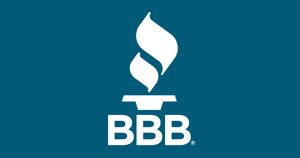Straight Talk: How to spot a scam notice about your mortgage

Better Business Bureau serving Canton Region and Greater West Virginia offers tips and advice for consumers to avoid fraudulent practices.
If you receive an unexpected letter from your mortgage company, look closely! According to numerous BBB Scam Tracker reports, the letters are a deceptive solicitation for a home warranty service. Here is how to spot the scheme.
How the scam works
You receive a letter that appears to come from your mortgage provider. It is allegedly from the company’s “Home Warranty Dept,” and claims that your home warranty must be renewed.
Before worrying, look closely at the letter and read over it a few times. One BBB Scam Tracker reported: “At the very bottom of the letter in small print is the comment, ‘Not all consumers have previous coverage. We are not affiliated with your current mortgage.’” Another homeowner reported: “The mailing is made to look like a check: it has the tear-away sides and inside is a ‘Renewal Fee Voucher’ for $199. It is not a check: it is an attempt to get you sign up for a home warranty."
If you do not read the fine print (or it does not appear in the letter you receive), you will likely be concerned your home warranty has lapsed, and your mortgage is at risk. However, you will not be dealing with your mortgage lender if you call the number and “renew” your warranty. Instead, you will have given money and personal information to a fake company that is claiming to be your mortgage provider.
This scheme is similar to the extended car warranty calls. The product may be real, but you truly need something else. Also, you want to avoid doing business with a company that resorts to misleading sales techniques.
How to avoid mortgage scams
Go to the source. If you receive any correspondence about your mortgage or home warranty that you are not sure about, do not use the contact information in the message. Instead, call your lender directly to inquire about the matter. Look up their contact information separately on your mortgage bill or search for your lender’s customer service line on their website.
Watch out for high-pressure offers or threats. Do not let scammers pressure you to act immediately, even if they say you could lose your home. If someone tries to use scare tactics, stop communicating with them and contact your bank or lender directly.
Shopping for a home warranty? Do your research first. Evaluate several options and read the terms closely before signing a contract.
Read the fine print. Reading the fine print is important for any contract, including the service contract for a home warranty. This will tell you what is covered under the agreement.
Double check the warranty company is registered in your state. Home warranty companies must be authorized to do business in your state to be legitimate. This may include authorization from your state’s insurance department. If a company does not have this authorization, it could be a scam.
For more information – If you have been the victim of a scam, report it at BBB.org/ScamTracker. Your report can help others avoid falling victim to scams.
For BBB information – Visit BBB.org/canton or call 330-454-9401 to look up a business, file a complaint, write a customer review, read tips and find our events, and remember to follow us on social media.
This article originally appeared on The Repository: Straight Talk: How to spot a scam notice about your mortgage
